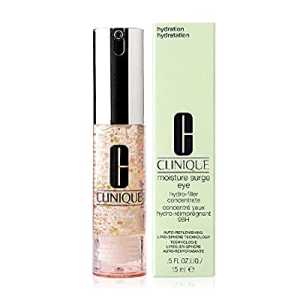
How To Choose The Right Eye Specialist For Your Vision Needs

Vision is one of the most precious senses we possess, yet many people wait until major problems appear before consulting an eye specialist. Whether you’re dealing with blurry vision, recurring headaches, eye irritation, or a planned surgery such as LASIK or cataract removal, choosing the right eye specialist can make a significant difference in treatment success and long-term eye health. With so many clinics and doctors available today, knowing what to look for is essential.
This comprehensive guide will help you understand how to select the right eye specialist for your unique needs, what questions to ask, and what factors to consider before making a decision.
Understanding Different Types of Eye Specialists
Before choosing an eye care provider, it’s important to understand the types of professionals available:
Optometrist
An optometrist specializes in eye examinations, diagnosing vision problems, prescribing glasses or contact lenses, and managing common eye conditions such as dry eyes, allergies, or infections.
Ophthalmologist
An ophthalmologist is a medical doctor (MBBS + MS/MD in Ophthalmology) trained to diagnose and treat all eye diseases, perform surgeries (such as cataract, LASIK, glaucoma, retina surgeries), and handle advanced or emergency cases.
Optician
An optician is a professional who designs and fits glasses or lenses according to the prescription provided by an optometrist or ophthalmologist. They do not treat eye diseases.
Knowing the difference helps you decide who to visit based on your needs.
When Should You See an Eye Specialist?
You should book an appointment with an eye specialist if you experience any of the following:
-
Sudden or gradual vision changes
-
Persistent eye pain or headache
-
Blurred or double vision
-
Frequent eye strain or dryness
-
Increased sensitivity to light
-
Difficulty seeing at night
-
Eye infections or redness
-
Flashes, floaters, or shadowed vision
-
Diabetes-related vision issues
-
Need for cataract or LASIK consultation
In such cases, it is essential to visit a qualified professional instead of self-medicating with over-the-counter eye drops or ignoring early symptoms.
Many patients in Maharashtra look for advanced eye care options, and choosing a trusted eye specialist in Pimpri Chinchwad ensures expert diagnosis backed with modern treatment facilities.
How to Choose the Right Eye Specialist for Your Vision Needs
Here are the most important factors to consider before making a decision:
1. Check the Specialist’s Qualifications and Experience
Look for degrees, certifications, and years of experience. Experienced ophthalmologists handle complex cases better and are well-versed in modern technologies and advanced surgical techniques.
Ask questions such as:
-
How many years have you been practicing?
-
What types of eye surgeries do you perform regularly?
-
Do you specialize in a particular condition such as retina, glaucoma, cornea, or pediatric eye care?
2. Know the Specialist’s Area of Expertise
Just like other medical fields, ophthalmology includes sub-specialties. Choose an expert based on your needs:
| Eye Concern | Specialist Type |
|---|---|
| Cataract & LASIK | Cataract / Refractive Surgeon |
| Retina problems | Retina specialist |
| Glaucoma | Glaucoma specialist |
| Squint, lazy eye (children) | Pediatric ophthalmologist |
| Cornea diseases | Cornea specialist |
If unsure, start with a general ophthalmologist who can guide you to the right specialist if required.
3. Look for Modern Technology & Equipment
Advanced technology leads to higher accuracy and faster recovery. Choose a clinic that offers:
-
Digital eye scanning and imaging systems
-
OCT (Optical Coherence Tomography)
-
Topography and Biometry machines
-
Laser-assisted treatment systems
-
Microscopic precision tools for surgery
Modern equipment improves diagnosis and reduces surgical risk.
4. Check Reviews and Patient Feedback
Online reviews, testimonials, and word-of-mouth recommendations provide real insights about:
-
Doctor’s behavior and communication style
-
Treatment success rates
-
Waiting time and facility cleanliness
-
Patient comfort and satisfaction
Positive feedback from existing patients is a strong sign of reliable service.
5. Understand Treatment Costs and Insurance Options
Quality eye care should be accessible and transparent. Check:
-
Consultation fees
-
Diagnostic test charges
-
Surgery or treatment packages
-
Payment plans or EMI options
-
Insurance coverage availability
The best clinics offer clear pricing and no hidden charges.
6. Evaluate the Clinic Environment and Support Team
Friendly staff, hygiene, and efficient management greatly influence patient comfort—especially during surgical procedures or emergency visits. A well-maintained clinic environment also reflects professionalism and care.
7. Check Availability and Accessibility
Choose a specialist who is easy to reach during emergencies and is located close to home or work. Good follow-up care is crucial for treatments like cataract surgery, LASIK, or glaucoma management.
Questions to Ask During Your Appointment
Before finalizing your eye specialist, ask:
-
What is the exact diagnosis?
-
What treatment options are available?
-
Are there risks or side effects?
-
How long is recovery time?
-
What precautions should be taken after treatment?
-
How many similar cases have you handled?
A good doctor will explain everything clearly without rushing.
Why Choosing the Right Eye Specialist Matters
Many eye conditions progress silently. Choosing the right specialist ensures:
-
Accurate early diagnosis
-
Proper treatment planning
-
Lower risk of complications
-
Long-term eye health preservation
-
Improved quality of life and confidence
Delaying treatment or visiting an unqualified provider can lead to avoidable vision loss.
Local Advantage: Finding the Best Eye Specialist Near You
If you are searching for expert vision care, consulting a trusted eye specialist in Pimpri Chinchwad can provide access to advanced eye treatments, modern technology, and individualized patient-focused care. A knowledgeable professional can guide you through routine eye health checkups as well as specialized surgical procedures with confidence and safety.
Conclusion
Choosing the right eye specialist is an important decision that directly affects your vision, comfort, and quality of life. By evaluating qualifications, experience, specialization, clinic technology, patient reviews, and cost transparency, you can confidently select a professional who meets your needs. Never ignore early signs of vision problems—early diagnosis and treatment can protect your eyesight for years to come.
If you are experiencing discomfort, blurred vision, or need expert guidance for surgery or advanced treatment, don’t hesitate to schedule an eye checkup with a trusted specialist in your area. Your eyes deserve the best care—because clear vision shapes a brighter future.
Author Bio
Article Comments
No Comments!
At present there are zero comments on this article.
Why not be the first to make a comment?
Similar Articles
Search Pages
Upgrade User Account
account to full use of editor,
including hyperlinks
Article Categories
There are zero sub-categories in this parent category.
There are zero sub-categories in this parent category.











